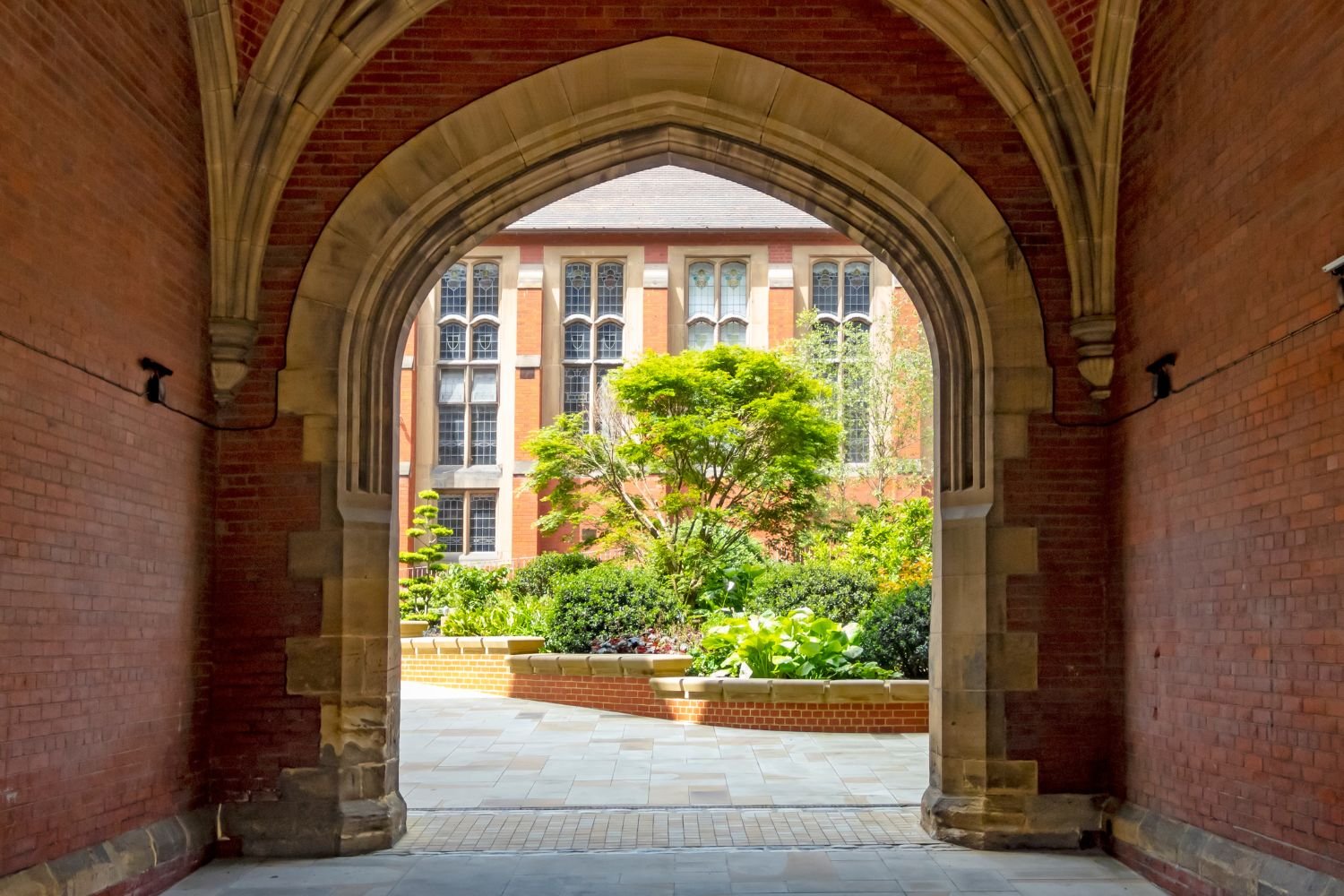Articles
Something new every week!
Search all articles

‘I just liked the logo’: How branding can help you make your university choice.
I expect at some point, you will all look at a university website and think ‘Yes, that’s exactly what I’ve been looking for!’, or perhaps ‘Nah, this isn’t for me’. And trust me, a lot of that will be to do with their brand, and how they have presented themselves.
Because of this, I wanted to give you just a few thoughts about university branding.
Bear with me; I promise there will be some useful take-aways at the end, and along the way you’ll learn some new stuff about marketing and strategy.

University rankings and league tables: just how useful are they?
You will probably be familiar with the concept of university league tables: they are rankings of universities, listed from best to worst, published so that you can easily identify the top universities in the country, and in the world - right?
Well, let's see…

Making your university choices: are you a driver or a passenger?
Right now, I’m reading Who gets in and why: A year inside college admissions, by Jeffrey Selingo. It’s a book all about university and college admissions in the US, by a renowned journalist who embedded himself inside several university admissions offices to find out what really happens. It’s a fascinating read, and while there are enormous differences between UK and US admissions, there are one or two areas where there are direct parallels between the two countries.
One aspect of his analysis that immediately resonated with me was his characterisation of applicants as either drivers or passengers.

A growth mindset; and it’s nothing to do with just being smart.
I’ve recently been reading Mindset, by Dr Carol S Dweck.
The book is a full and frank discussion of two different types of mindset: a fixed mindset, and a growth mindset, and the consequences of being stuck with the former.
A person with a fixed mindset believes they are either dumb or smart; they can’t change it.
A person with a growth mindset believes that being dumb or smart isn’t the issue. They can learn, improve, and get better, whatever their starting point is.

Three tips to help you study smarter (not harder).
The Christmas holidays might be just around the corner (yay!), but for many of you this will mean that mock A-levels (or other exams) will follow pretty shortly after that (boo!).
And so, lots of you will have teachers and parents telling you that now is the time to work harder; now is the time to revise and make sure you know your stuff.
The conscientious amongst you will do exactly this, and will spend lots of time re-reading all your notes. The less conscientious won't, but will probably pretend to be working while actually doing something completely different.
But what if there were ways that you could use your study time more effectively and more efficiently?

UCAS Applicant Days: What are they and how do you get the most out of them?
As I write this, thousands of you who have applied to UCAS relatively early will be beginning to receive offers from universities. Most of these offers will be accompanied by an invitation to go and visit the university, normally to an event called a UCAS Applicant Day, or something similar.
In this article we’ll be having a look at what these events are, how they differ from University Open Days, and what you should be looking out for if you decide to attend one.

University and careers. Show me the data!
Last week we looked at the connection between going to university and getting a good job. We saw the hard reality that study alone will almost certainly not get you your dream job, but that university can be a great place to gain the knowledge, skills, experience and contacts to prepare you for your life and career ahead.
This week, we put that all to the test, by looking at some hard data on graduates, jobs and careers. In the real world of employment and salaries, is going to university worth it?
We’ll look at the UK government’s own graduate labour market statistics, and at the outcomes of a recent graduate and business leader survey by Universities UK.

“Go to university!” they said. “It’ll get you a good job!”
Perhaps university will get you a good job, and perhaps it won’t, but one thing is for sure: if you think that university study alone will land you your dream job, you are going to be very disappointed in a few years time.
I have appointed more than a hundred people in my career, and not one of them got their job on the basis of their university study alone. They got their role because of the knowledge and experience they had, the skills they could demonstrate, the motivation they showed, and their aptitude to learn.

Falling in love... with learning
It’s nearly November, and those of you in your final year at school will be right in the thick of it with your university application process. You might be super-organised, and have applied already. You might be finalising your Personal Statement and refining your final choices. Or you might just be taking the first baby steps towards working out what on earth you are going to apply for!
Whichever stage you are at, you are not alone; there are thousands of others in the same position.
All of you (except a few super-human students), will be going through the same doubts: Am I doing the right thing? Is university for me? Will I enjoy the course? Will it be worth it?
And so now is actually a really good time to ask the essential question of yourself: Why go to university? And in particular, why are you looking to apply to university?

How to get feedback on your UCAS Personal Statement
So, you’ve had a go at writing your UCAS Personal Statement. The school deadline is looming, and you have no idea whether what you have written is any good.
This is where you need to start looking for some specific help and support. The great news is that there are almost certainly people around to help you.
However, getting feedback is not simple. Knowing who to ask (and when) is not simple. And knowing who’s input to take on board is not simple.
But never fear, I have a few ideas about how to maximise and make the very most of the feedback you can receive, by getting the feedback in a planned manner.

How to avoid becoming a drop-out statistic
OK, so I really don’t like the term ‘drop-out’, but I wanted to get your attention, and ‘non-completion rates’ or ‘students leaving their degrees’ just didn’t cut it as a headline. I promise I won’t use it again.
But here’s the thing… recent data released by the Student Loans Company has revealed that the number of students who are not completing their degrees is on the rise, up around 28% over the last five years. (See this BBC article).
This is not good.
In human terms, that’s nearly 42,000 young people who left their degrees last year uncompleted, carrying with them their student debts, and doubtless a whole load of other unwanted baggage.

We need to talk about The Russell Group
Have you heard of the Russell Group? If you’re just at the start of your decision-making journey, you might not have. But rest assured, as you start to investigate your university options, it’s going to crop up!
The Russell Group, you see, is a group of 24 universities regarded by many as being the top universities; the most prestigious universities; the universities that the best students should be applying to.
They formed in 1994 as a group of 17 research intensive universities after a handful of informal meetings at the Russell Hotel in Russell Square*. They now have a membership of 24, including Oxford, Cambridge, Imperial, Manchester, Southampton and Liverpool, amongst others.

University admissions interviews: What they’re for, what they’ll include and how to prepare for them!
Potentially one of the most intimidating parts of the whole university selection process is the admissions interview.
Most advice I’ve seen on interviews tends to revolve around what questions you might be asked and what to wear. I’ll get to these a bit later, but I’ll start by looking a little deeper into why you are being interviewed, what structures the universities might use, who might be involved in these, and what impact it could have on your admissions. The more you know about this, the more sense the whole process will make, and the better you can prepare yourself.

The world is changing. What does that mean for jobs and the skills you need?
Every couple of years, the World Economic Forum publishes their Future of Jobs report, which looks at the impact of world-wide issues on jobs and the skills needed by employers. The latest version came out in May this year. It’s quite a piece of work, the fourth of its type in a decade, and based on a large-scale, world-wide survey of employers.
It is an absolute gold-mine of information, data and insight into the future of careers, and as you make important decisions about your future studies and career, you are going to want to know about it!
However, it’s 300 pages long, so you’ll be delighted to know that I’ve read it, so you don’t have to.

Preparing a portfolio for Art and Design
Firstly, I’d better make clear that I am not a specialist in art and design. While I have been at the sharp end of making admissions decisions on applications for a variety of subjects, I have not been an admissions tutor for art or design subjects.
What I have had, however, is the opportunity, to work with some amazing art teachers and lecturers (most notably at Loughborough University and the University of South Wales). I have listened to them talk about what they like to see in portfolios, and watched them discuss individual portfolios with the students who created them.
I have attempted to distil what I have learned into a simple guide to preparing your portfolio. You’ll soon realise, however, that it will take more than a short article on a website for you to fully understand what an amazing portfolio will look like specifically for you. So take this article as just the beginning, a jumping off point if you like; a solid platform from which to start your journey.

Just who are admissions tutors anyway?
This newsletter is all about you making better university choices, and of course, making a great application. But what of the universities? They make decisions too, and most specifically they’ll decide whether to accept your application and offer you a place!
In this article, I’ll give you a bit of insight into how universities make decisions, who makes the decisions, and the processes they use.

Just how ambitious should you be with your initial five UCAS choices?
The basic principle behind the UCAS system is that it balances the need for students to have a range of choices when they apply, with the need for universities to have some kind of predictability in working out how many offers to make. So, for many years, students have been able to make up to five choices. Any more, and the universities will simply be swamped with applications that are not realistic or necessary. Any less and you could run the risk of not getting an offer of a place that suits you.
The system works reasonably well most of the time, provided students are realistic with their applications, and provided universities are transparent with their entry criteria, and consistent with their offers. This year nearly 79% of A-level students secured their firm choice (ie. their first choice course), while 12% got into their insurance choice.
So, how do you make sure the system works well for you? How do you turn all that research, all those possible choices, into a list of five courses on your application form that gives you the best chance of getting into a course that you really want to do? Is it as simple as listing your five favourite courses? I’m afraid not. But neither is it some dark art where you need to have some amazing insight and specialist knowledge to get it right. Just read on, and I’ll try to make it as simple as possible.

Things to see, do and ask at a University Open Day
Off to an open day soon? With over 100 such events in September and October, it’s certainly a good time to be going!
Open days were always one of my favourite parts of working at a university. I loved seeing everyone arrive on campus - all with a sense of excitement and anticipation about what this intriguing place might hold in store for them in their future. I loved working with a team of staff and student ambassadors, doing our very best to show off our university, and giving future students just a small glimpse into what their next steps could look like.
Of course we tried to show our university in the best possible light, and it's for that reason that I’ve written this; a few tips on how to understand what they are showing you, and when to ask for more, or to see things a little differently.

Applying through a Student Recruitment Agent
Last week we looked at how you might go about choosing an Independent Education Counsellor. This week, we look at recruitment agents. Sometimes it might not be obvious to you, as an applicant, who are independent counsellors, and who are agents. Sometimes you might find the same company is offering, in effect, the two models together. But we need to be clear, the business models are quite different, and this matters.

Top 10 things I learnt at the University of Cambridge Open Day
A few days after I’d been to the University of Oxford Open Day I had a message from a long-standing friend that he’d be attending the University of Cambridge Open Day with his son the following week. Did I want to meet up?
I thought for at least half a second before replying a very positive “yes”. After seeing Oxford, what better than to see their nearest and dearest rival on equal terms. And of course to catch up with an old friend who I hadn't seen for a couple of years (you know who you are!)
So off we went, on a beautifully sunny day to visit the University of Cambridge!
